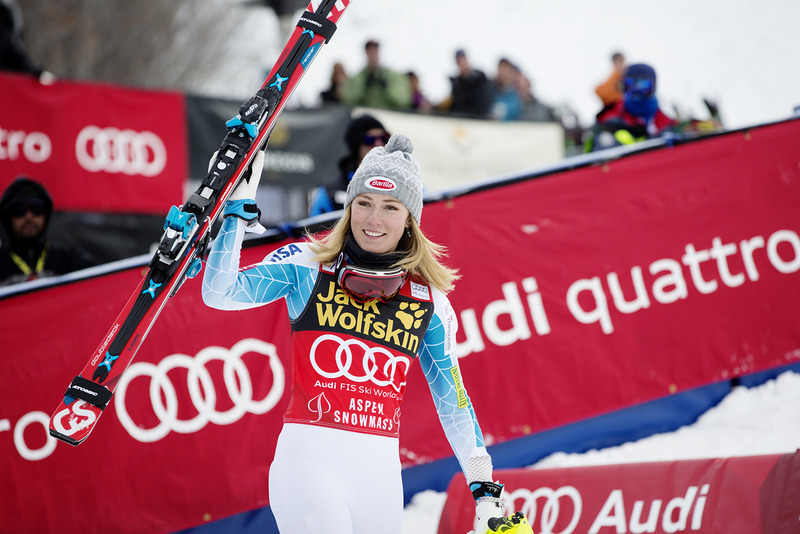The Local newsletter is your free, daily guide to life in Colorado. For locals, by locals.
There doesn’t seem to be any type of racecourse Mikaela Shiffrin can’t set ablaze. The Eagle-Vail resident clinched her third-consecutive World Cup title amidst one of the most dominant seasons ever produced in professional skiing. She’d been statistically favored to take home the World Cup crown for weeks, but it became official when races were cancelled earlier this month in Sochi, Russia, ensuring no other skier could catch Shiffrin in the standings.
What’s even more impressive is that this season has been her most successful one to date. With 17 World Cup victories, she broke the record for most wins in a single season. She’s shattered records, most recently as the only athlete in history to win four straight World Championship slalom titles. She’s also become a smoking hot force in super G, winning the 2019 World Championship SG title and clinching her first World Cup globe in that discipline.

But none of these things carry much weight with her.
Ask her how she’s made it happen, and she will say that she’s actually taken a more relaxed mindset to competition. She aimed to have more fun this season and not let outside pressure get to her. You could say she’s found Zen.
“When you don’t have expectations, it’s really easy to exceed them,” she said on a conference call with reporters after winning medals in three out of three events she entered in the 2019 FIS Alpine World Ski Championships, which took place February 4–17 in Are, Sweden. “I don’t know what everybody else’s expectations were. One of my big focuses over the last two seasons was to accept that people have them, because my track record is good, but to not let that get to me. I go into every race, expect nothing, but do the best I can with the task at hand. If it works out, that’s great.”
It’s worked out better than she could have ever imagined. But it also hasn’t come without its pitfalls, most of which have been undetectable to outside viewers. Although Shiffrin almost never crashes, misses a gate, or so much as bobbles in any race, the reality is that tossing lightning fast turns between gates—particularly in giant slalom, where gates are set close but with no clear rhythm between them and speeds reach up to 45 mph—takes its toll on one’s body.
“I’m having more fun this season than I ever have, which is awesome. It’s also been a tough season,” Shiffrin said. “It seems like every step of the way there’s been something frustrating to overcome. Each year, my body is starting to complain to me. My back has been nagging all season long. A lot of skiers deal with GS back or skier’s back. With the amount of physical force [involved] when you make turns in GS, your back goes into spasm. Also, this sickness came at an inopportune time.”
Shiffrin delivered her unprecedented World Championship performance when she was suffering from a severe respiratory virus, rendering her so weak that she said she could barely walk up a flight of stairs (hence, her uncharacteristic emotional collapse in the finish area when she nailed the slalom gold).
Still a bit wheezy post-Championships, Shiffrin is already dreaming of being home and taking a few days off in a sunny, tropical climate.
“I’m looking forward to getting home, seeing my family, seeing my brother. It’s been November since I’ve been stateside,” she said. “It might be farther along, but I’m looking forward to getting to a beach somewhere. I’m looking forward to the last races of the season. Hopefully I’ll get 100 percent healthy again.”
Shiffrin turned 24 on March 13, but much like her profound and ever-growing litany of accomplishments, her birthday is not something she dwells on—or even celebrates much.
“Honestly, my birthday is like the records,” she said. “I don’t think about it.”
Editor’s Note 3/18/19: This story has been updated to reflect Shiffrin’s end-of-season victories.








